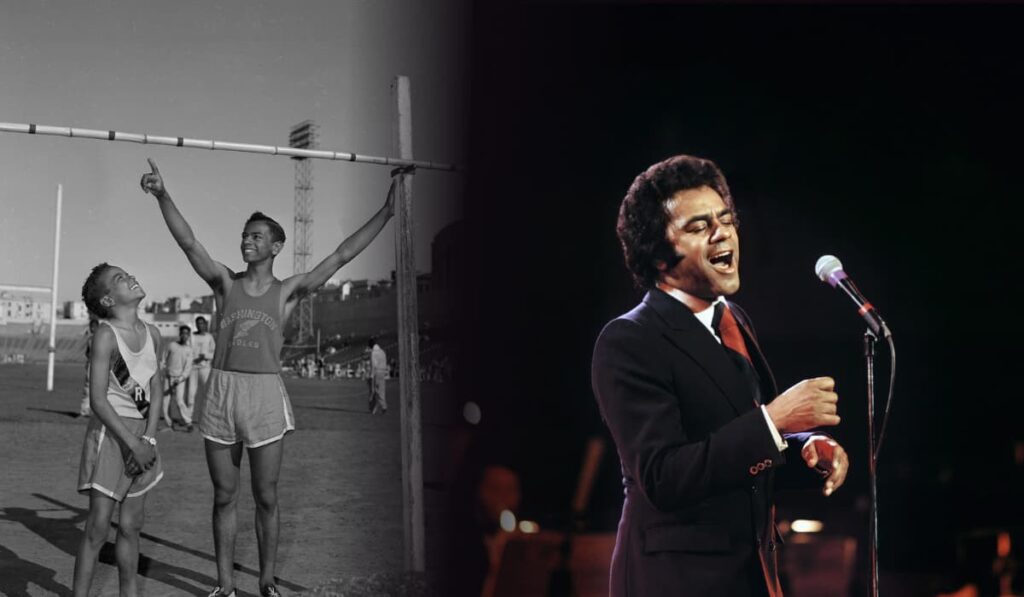
When High Jumps Met Heartfelt Harmony: The Untold Dual Destiny of Johnny Mathis
Johnny Mathis’s life is a rare blend of physical excellence and artistic mastery—two worlds that collided in a single, pivotal week of his youth. Born John Royce Mathis on September 30, 1935, in Gilmer, Texas, and raised in San Francisco, Mathis was the fourth of seven children. His father, Clem, recognized his son’s musical gift early on, purchasing a $25 upright piano that had to be dismantled to fit into their home. He taught young Johnny to sing “My Blue Heaven,” planting the seed for a voice that would one day captivate millions.
In school, Mathis’s talents stretched beyond music. At George Washington High School and later at San Francisco State, he excelled in track and field, specializing in the high jump. His leap of 6’ 5½″ in Reno was not only a personal best but also surpassed NBA legend Bill Russell’s record at the time—just shy of the Olympic standard. By the mid-1950s, Mathis was considered one of the city’s finest jumpers, with a shot at the U.S. Olympic Trials.
Then came 1956—a year of destiny. Mathis was invited to the Olympic Trials, but Columbia Records also called, offering him a chance to record his first album in New York. Two paths lay ahead: a future in athletics or a leap into music. In an extraordinary act of faith, he chose the latter, trading his spikes for sheet music. The decision transformed him from a promising athlete into one of America’s most beloved singers, with timeless hits like “Misty” and “Chances Are” earning him a place in the Grammy Hall of Fame.
Yet, Johnny Mathis never left his athletic roots behind. For over forty years, he quietly donated significant sums to support San Francisco State’s track-and-field program—often in the six-figure range. He credited his athletic training for giving him the stamina, discipline, and focus needed for a career spanning more than seven decades.
“He jumped higher than his own dreams, leapt over expectations, and landed in a world where his voice soared as gracefully as his body ever did.”
“Choosing music over medals, he carried the discipline of the track into the studio—each note a testament to the power forged in athletic persistence.”
From the dusty pit of the high jump field to the polished glow of studio lights, Johnny Mathis’s story is proof that sometimes, the leap that changes your life is not the one you take in competition, but the one you take toward your true calling.